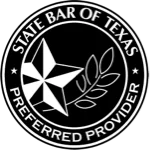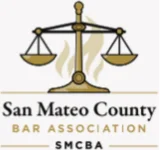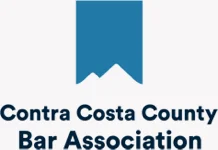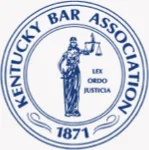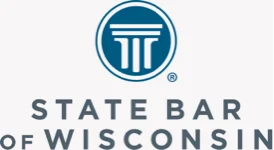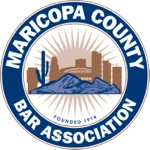Natural backlinks are the green flags of the Internet. Earning them is slow and tedious, but you must take the high road to avoid the red flags of spammy backlinks—at all costs.
Backlinks are the green flags of the Internet. Think of them as votes of confidence that build a strong reputation with Google (and users) when coupled with other credibility-boosting elements, like excellent content and user experience.
Unfortunately, backlinks are misunderstood. This fact matters more than ever, now that Google is improving its process for assessing and rewarding (or penalizing) sites for their backlinks.
A solid content strategy is on our must-have list for law firms in 2025. To this end, many firms engage in link building services with the idea that quantity is better than quality. That simply isn’t the truth. While we don’t want to discourage link earning, it’s important to understand what makes a good link vs. a bad link.
So here’s our quick guide to why backlinks are important for law firms and how Google uses them to determine credibility and relevance—plus some handy dandy tips to audit and improve your backlink profile with natural backlinks.
What is a backlink vs. a natural backlink?
A backlink is any link from another website that sends users to your law firm’s website.
Backlinks can be great for boosting your site’s credibility—if they come from reputable, authoritative sources. However, not all backlinks are beneficial.
Unnatural backlink: Designed to manipulate the search results or a spammy-looking link
Unnatural backlinks could be links you bought, exchanged, or posted somewhere out of alignment with your industry. These will be penalized by Google. In years prior, link-exchanges were popular. Now, they’re outdated and ineffective.
Natural backlink: A link to your site that was authentically included by a neutral party and has the best interest of the user in mind.
Natural links are typically a result of the other site finding value in your content and linking to it as a reference or a helpful resource. Natural links build user trust and they’re good for search engine trust. They show credibility and authority.
If you’re wondering, How do they know? Google’s algorithm is super sophisticated and uses various systems to understand how pages link to each.
Your firm’s backlinks are a trust signal for search engines
Backlinks give proof to search engines that a website is legitimately valuable.
The better your backlink profile, the stronger the signal to Google. You want Google to be confidently proclaiming that your site is authoritative. Why? Because Google wants to give top ranking to the most useful, trusted websites.
Backlinks are an important part of law firm SEO—but they’re not the only signal Google cares about.
Relevance, trust, domain authority…the reality is that Google’s rubric includes many nuanced criteria. So let’s get detailed.
What makes a good, natural backlink?
The source is the main determinant of what makes a good, natural backlink. The best backlinks come from high-quality sources in your industry, and they fit naturally within the content.
There are 5 things you need to know about good backlink sources:
Industry relevance: The source is relevant to the legal world.
- YES: A legal directory like Avvo, local bar association, a law school website, industry-specific nonprofits
- NO: A tabloid, a local restaurant, unrelated industry blogs, spammy press releases
Industry authority: The source is authoritative, popular, and trusted.
- YES: Major news outlet, government site, think tanks, academic citations
- NO: A new legal podcast from a no-name, generic news aggregators, affiliate-heavy blogs, non-expert thought leadership sites
Context with the link: The link includes helpful context, not just a URL.
- YES: You share a link to your website on a forum, including a thoughtful comment.
- NO: Spamming a forum with links, sans any comments or helpful context
Diversity of source URLs: Multiple sources link to your site.
- YES: Your backlinks include a variety of news websites, legal directories,
- NO: You only have backlinks from two other law firms.
Diversity of your URLs: Multiple webpages on your site are have backlinks.
- YES: Your backlinks include your FAQ page, a helpful blog post, and your attorney profile.
- NO: Your homepage is the only backlink you’ve earned.
One more pro tip: Anchor text for a backlink should be natural, not keyword-optimized.
Anchor text is the clickable part of a link. Rather than saying “go here” to learn more about our company, I could say “OneFirst’s team” is ready to help you level up your website’s potential. Avoid using anchor text that feels spammy or overly strategic, like “best law firm marketing agencies.” Be natural and descriptive.
It’s also okay to use links plainly, aka directly posting the URL.
If you’ve been reading closely, you may have noticed some seemingly contradictory info in this list. For instance, legal directories are authoritative and relevant sources…but they’re not great for adding context to your link or including multiple URLs. Badges can add credibility, but not all badges are credible.
Natural link-building is a long-term, multi pronged effort that should include a variety of tactics like guest posts, media placements, and networking. Don’t trust any expert who tries to sell you links, get-links-fast strategies, or quantity over quality. Speaking of quantity…
Myth-busting: More is not better
Sheer quantity will not win you the top spot in the backlinking competition.
This is a common misconception. In truth, quality far outweighs quantity when it comes to backlinks.
Be selective about earning the best links rather than obsessive about getting the most links.
You could have hundreds of backlinks—but unless every single backlink is pristinely relevant and authoritative to your niche, they simply don’t mean a thing. Worse, a boatload of spammy backlinks will earn you penalties from Google and could tank your rankings.
Google has become very adept at identifying manipulative link-building tactics. Try as you might, Google will be onto you. And both manual and algorithmic penalties can be difficult and time-consuming to recover from.
Myth-busting: Natural links are harder to achieve
Nope! This one is good news: “Natural” link building can be achieved relatively easily. While bad linkbuilding practices can also be fast, easy and more cost-effective (we’re sure you’ve gotten solicitations selling these services at a fraction of the cost of reputable SEO services), it can take a long time to recover from an algorithm update that penalizes them or a manual penalty and regain Google’s trust.
- Mentions matter, even if they’re not links: According to Google, you don’t even have to be linked to earn authority online (though a link is more powerful).
- Link velocity should be slow: If you’re earning natural links at a reasonable pace, you shouldn’t trigger any alarm bells at Google for unnatural growth. Slow is good in this case. There is no specific rule or number, but spiky growth may garner unwanted penalties.
Audit your firm’s link profile
Auditing ensures that your backlink profile is healthy and aligned with best practices.
Fix the bad:
- Identify harmful backlinks using Google Search Console or Ahrefs.
- Disavow toxic backlinks through Google’s Disavow Tool.
Add the good:
- Create high-quality, authentic content for your site that’s worth a backlink.
- Nurture relationships with authoritative and industry-relevant publications.
How to get the right backlinks for your firm
While you can’t buy backlinks, you can earn them.
DO: Seek earned media opportunities
Placement in local or national media outlets can go a long way in establishing credibility. Pitch news publications about topics where you can lend your expertise. For example, when there are changes in a law that will impact their readers/viewers.
DO: Create high-quality content that answers nuanced questions.
Publish high-quality content that will make people naturally want to link to you. Content could include long-form case studies, legal insights, detailed resource guides, or original research on your blog (yes, you need one). Be cautious with press releases, but consider a timely and well-written release for any newsworthy events.
DO: Reach out to relevant, authoritative publications about guest posting.
Guest posts can be a win-win. You get to demonstrate your firsthand expertise with a semi-permanent backlink to your site, and the host site gets to provide value to its readers with a new perspective. Just remember to write for different sources so your citations are diverse.
DO: Amplify your own signal.
Reshare your own content on social media. Get those links out into the world for other people and search engines to find them and boost them. Another way to amplify your firm is by becoming involved in your community; sponsor a local little league tournament or serve as the chair for a charity event. These opportunities will often include a link back to your site and increase goodwill in your local area.
DO NOT:
X Buy links
X Exchange links
X Trust companies that promise big bundles of link placements or cheap links
X Repeat content verbatim in multiple places.
Natural link building is a long-term strategy. Don’t cut corners.
Review and next steps
You know you need backlinks, and you know there are good and bad links.
Let us sort the wheat from the chaff. You handle the people, we’ll handle the pixels.
Book a short, free consultation and get your website on track for sustainable growth.




